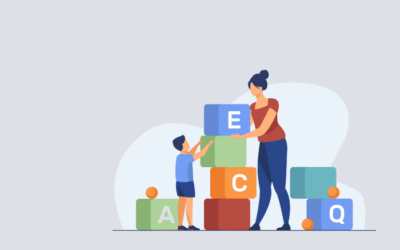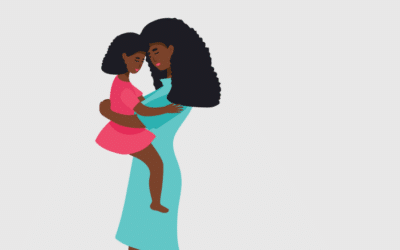A recent survey by Cigna shows that over 50% of Americans are lonely. In fact, a whopping 54% of those polled felt that there was no one in their lives who knew them intimately. The statistics are certainly shocking, but loneliness isn’t just a U.S. phenomenon.
The existential crisis of loneliness is far reaching. It’s been on the radar of many first world countries, including Japan and Great Britain, for a long time. In fact, the impact of loneliness was of such grave concern to the U.K. that they actually elected the country’s first Minister of Loneliness in 2018.
It was in February, what seems like a lifetime ago, that the loneliness epidemic first came to my radar. It was an early morning, so early in fact that one could argue it wasn’t really morning at all. Unable to go back to sleep and feeling the need to be productive, I fired up my laptop and threw on an episode of one of my favorite podcasts, Freakonomics.
A couple hours went by and my phone automatically played one episode after the next. I remember hearing a phrase that caught my attention. My groggy mind quickly shifted its focus to what was just moments before background noise. I remember hearing, “Top doctor calls it a national health crisis. It’s not obesity or heart disease, but a condition so common you might not think of it as a mental health problem at all. Loneliness, that’s right, loneliness.”
I’ve never considered myself a “lonely” person. Outside of work, however, I spend most of my time by myself. It’s really something that I prefer. I’ve always been described as a driven person and am highly goal-oriented. However, any success that I’ve achieved in my life has come at a price. My career really has come before people and has inhibited my ability to form in-depth relationships with those outside my professional realm.
I’m not alone though. According to a recent publication of the Harvard Business Review, a vast number of Millennials and Generation Z struggle with loneliness. Many of which, value their careers and productivity before forming and maintaining meaningful personal relationships. So, perhaps it’s a generational thing, a cultural thing, or even the result of greater reliance on technology as a part of daily life.
Regardless of the reason why the loneliness phenomenon has taken hold, its implications are powerful. Those who are lonely are at increased risk for heart disease, depression, anxiety, and a host of other health conditions. Here’s the kicker though, the scariest of all the implications of loneliness is by far that of the increased risk of early death.
I kid you not, loneliness can literally kill you. Here’s another bomb though, many of the negative effects of loneliness are experienced regardless of whether those who are socially isolated feel perceived loneliness. There are a host of reasons why this may be, but regardless of why, it’s enough that anybody reading should be potentially concerned.
Even businesses should be concerned about this growing social issue. Employees that lack meaningful or trusting relationships in the workplace are more likely to be disengaged, struggle with productivity, and are more likely to suffer from burnout and leave the organization.
Furthermore, since the onset of the COVID-19 pandemic, a large number of people have begun to work remotely. While we’re graced with the ability to leverage technology to help with connection, surveys show it’s just not enough to stave off loneliness. A recent poll taken by the Harvard Business Review shows that since the onset of this pandemic, 75% of employees feel more socially isolated.
So, what is a person to do? How do you create connection in a world where at times it’s easier to be alone?
Here are a few tips to help fight loneliness and the negative consequences that come with it.
Spend Time Each Day With Those You Love
In a world where it’s easy to get caught up in the hustle and bustle of daily life, make sure that you’re scheduling some time for the people you care about. Even if it’s only 15 minutes a day, it can make a world of difference for your mental and physical health.
Despite this pandemic and the social distancing which it requires, you can still schedule some time over phone or using video conferencing software such as Facetime, Skype, WebEx, or Zoom.
Eliminate Distractions While With Others
In a world where technology is literally at our fingertips, it’s easy to be physically with others and not mentally there. Forget about multitasking and make sure to put away your electronics so that you can engage with those you love. Give the other person the gift of your full attention and really be present during the interaction.
By truly interacting with others, we create opportunity for real connection, while also helping the person we’re with feel validated. It’s hard, we know! However, we promise that it will be worth the effort!
Embrace Solitude
We know it sounds counterintuitive, but to build strong connections with others, we must first build a strong connection with ourselves. In order to do this, we must make the time and space to explore our inner-workings. Great ways to do this are by being alone in nature, taking the time to be creative, listening to music, and through meditation.
Let Kindness Spread Like Wildfire!
We create connection through building bonds with others. How do we build these bonds? Well, a big way of doing this is through vulnerability. What’s more vulnerable than allowing yourself to be helped or putting your own self-interest aside to help others?
On an individual level, keep this in mind the next time you see someone struggling. On a larger scale, organizations and even governments can do this by working to foster connections between people in different job roles or socioeconomic sectors.
Are you looking for more content to guide you on your path to a happy, healthy life? Check out the rest of our blog and don’t forget to follow us on social media. We can be found at youthdynamicsmt on Instagram, or People of Youth Dynamics and Youth Dynamics of Montana on Facebook.






